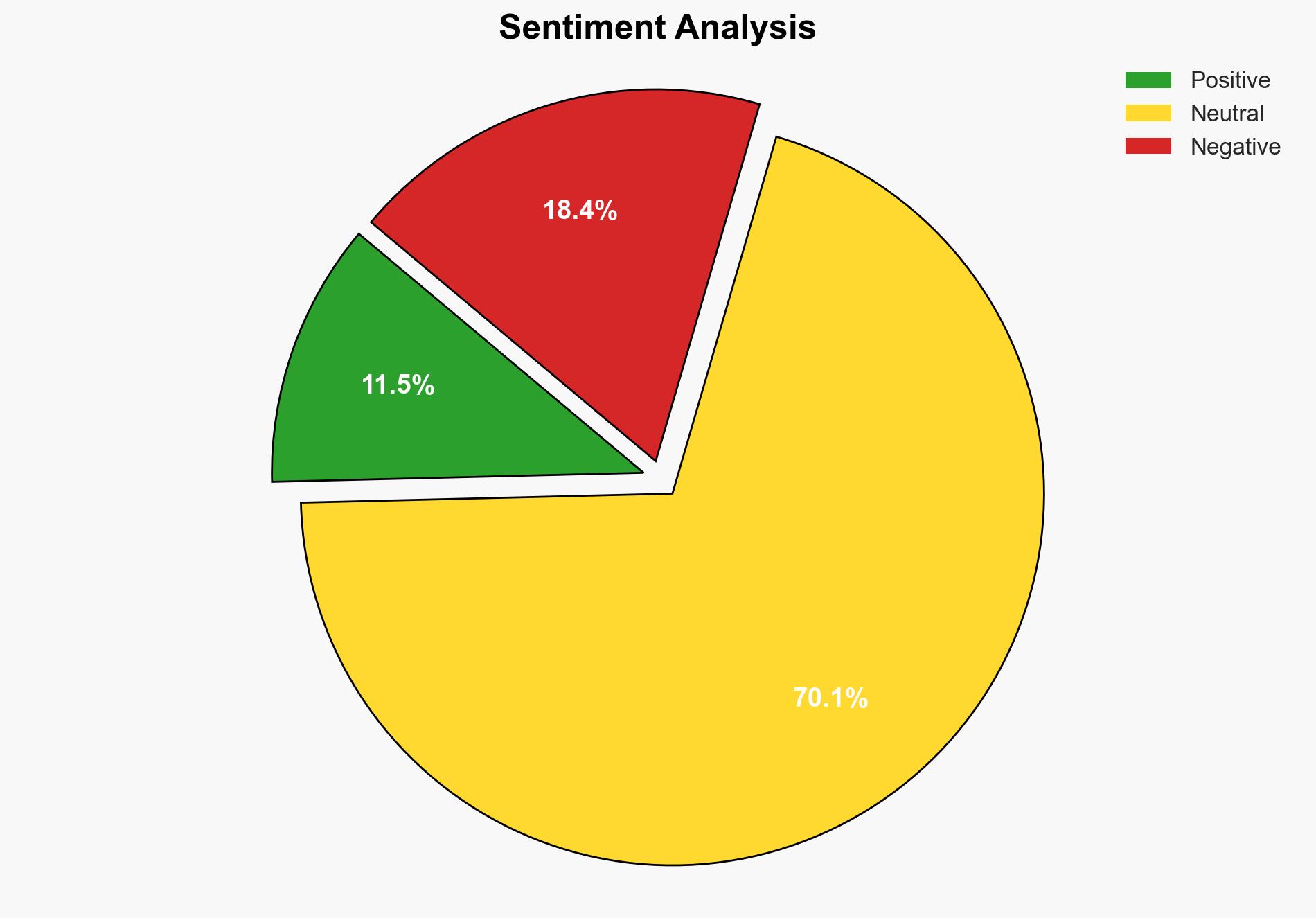An unpatched Windows zero-day flaw has been exploited by 11 nation-state attackers – TechRadar
Published on: 2025-03-19
Intelligence Report: An unpatched Windows zero-day flaw has been exploited by 11 nation-state attackers – TechRadar
1. BLUF (Bottom Line Up Front)
An unpatched Windows zero-day vulnerability has been actively exploited by 11 nation-state actors, including groups from North Korea, Russia, Iran, and China. This flaw allows attackers to execute hidden commands via malicious shortcut (.lnk) files, facilitating espionage, data theft, and malware distribution. Despite the severity, Microsoft has not prioritized a patch, citing the issue as a user interface concern. Immediate attention and mitigation strategies are recommended for affected sectors.
2. Detailed Analysis
The following structured analytic techniques have been applied for this analysis:
General Analysis
The zero-day vulnerability in Windows has been identified as a critical security flaw, exploited by nation-state actors for espionage and data theft. The vulnerability, which remains unpatched, allows attackers to embed harmful code within .lnk files, executing commands without user interaction. This has been leveraged in espionage campaigns targeting government agencies, private sector firms, financial organizations, think tanks, and telecommunications companies. The Zero Day Initiative (ZDI) has criticized Microsoft’s downplaying of the vulnerability’s significance, highlighting the potential for widespread impact.
3. Implications and Strategic Risks
The exploitation of this vulnerability poses significant risks to national security, with potential impacts on regional stability and economic interests. The involvement of multiple nation-state actors indicates a coordinated effort to exploit this flaw for strategic advantage. The lack of a timely patch from Microsoft exacerbates the risk, leaving critical infrastructure and sensitive data vulnerable to attacks. The financial sector, government agencies, and telecommunications firms are particularly at risk, with potential for significant data breaches and operational disruptions.
4. Recommendations and Outlook
Recommendations:
- Urgently implement mitigation strategies, such as disabling .lnk file execution and enhancing network monitoring for suspicious activities.
- Advocate for regulatory changes requiring timely patching of critical vulnerabilities by software vendors.
- Encourage organizations to adopt advanced threat detection technologies and conduct regular security audits.
Outlook:
In the best-case scenario, Microsoft releases a patch promptly, and organizations implement effective mitigation strategies, minimizing impact. In the worst-case scenario, continued exploitation leads to significant data breaches and operational disruptions across critical sectors. The most likely outcome involves a gradual response from Microsoft, with organizations taking independent steps to mitigate risks, resulting in a moderate level of disruption.
5. Key Individuals and Entities
The report mentions significant individuals and organizations involved in the analysis and response to the vulnerability. Notable mentions include Trend Micro and Dustin Child, who have been vocal in criticizing the handling of the vulnerability. The involvement of nation-state actors from North Korea, Russia, Iran, and China highlights the geopolitical dimension of the threat.





